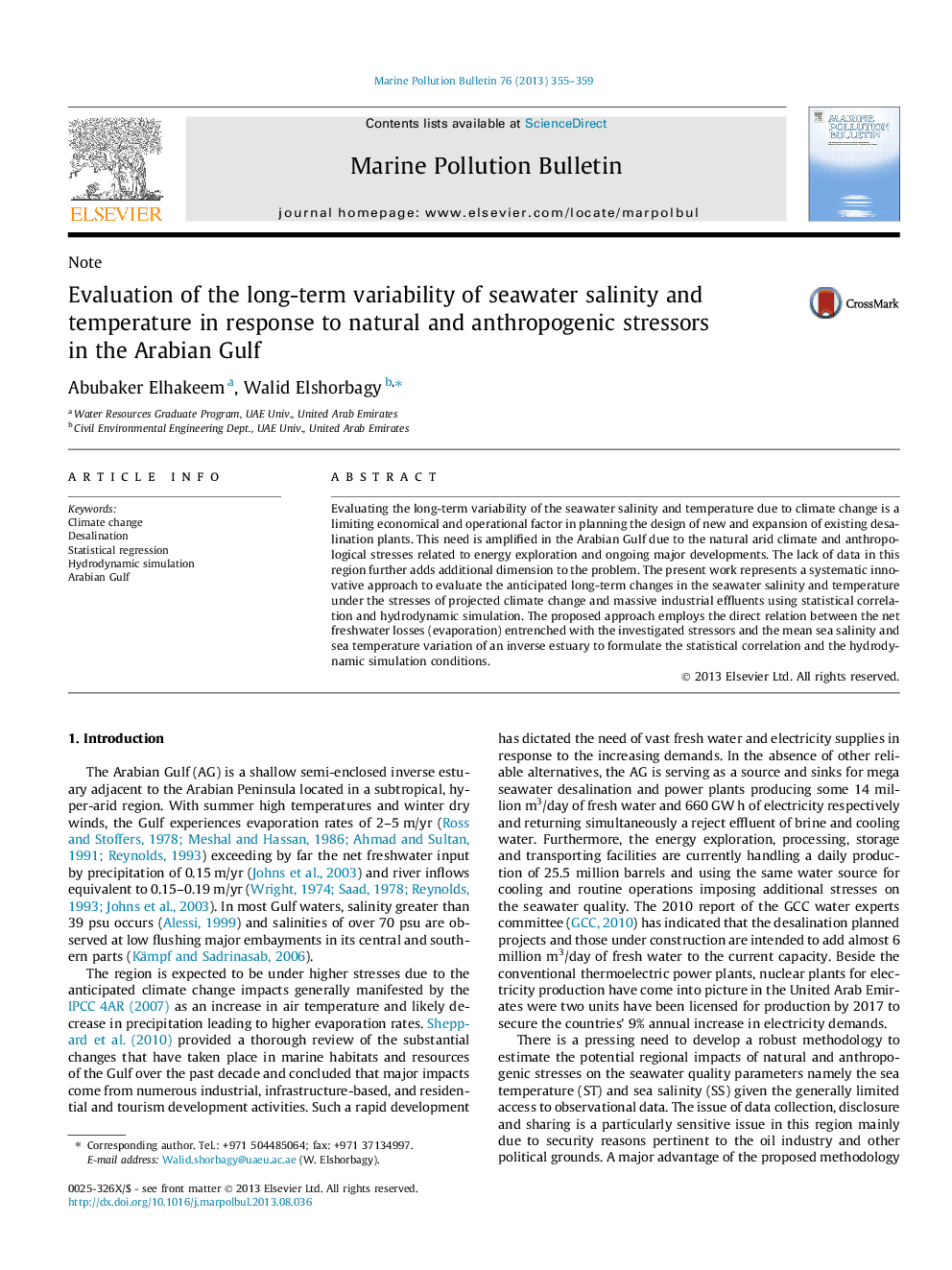| Article ID | Journal | Published Year | Pages | File Type |
|---|---|---|---|---|
| 6359140 | Marine Pollution Bulletin | 2013 | 5 Pages |
â¢Systematic approach to estimate long-term seawater salinity and temperature.â¢Consider impacts of climate change and industrial effluents.â¢Apply the proposed approach to the Arabian Gulf known with limited observations.â¢Employ hydrodynamic simulation and net evaporation correlated to target estimates.â¢Assist experts in marine and desalination industry on relevant design decisions.
Evaluating the long-term variability of the seawater salinity and temperature due to climate change is a limiting economical and operational factor in planning the design of new and expansion of existing desalination plants. This need is amplified in the Arabian Gulf due to the natural arid climate and anthropological stresses related to energy exploration and ongoing major developments. The lack of data in this region further adds additional dimension to the problem. The present work represents a systematic innovative approach to evaluate the anticipated long-term changes in the seawater salinity and temperature under the stresses of projected climate change and massive industrial effluents using statistical correlation and hydrodynamic simulation. The proposed approach employs the direct relation between the net freshwater losses (evaporation) entrenched with the investigated stressors and the mean sea salinity and sea temperature variation of an inverse estuary to formulate the statistical correlation and the hydrodynamic simulation conditions.
